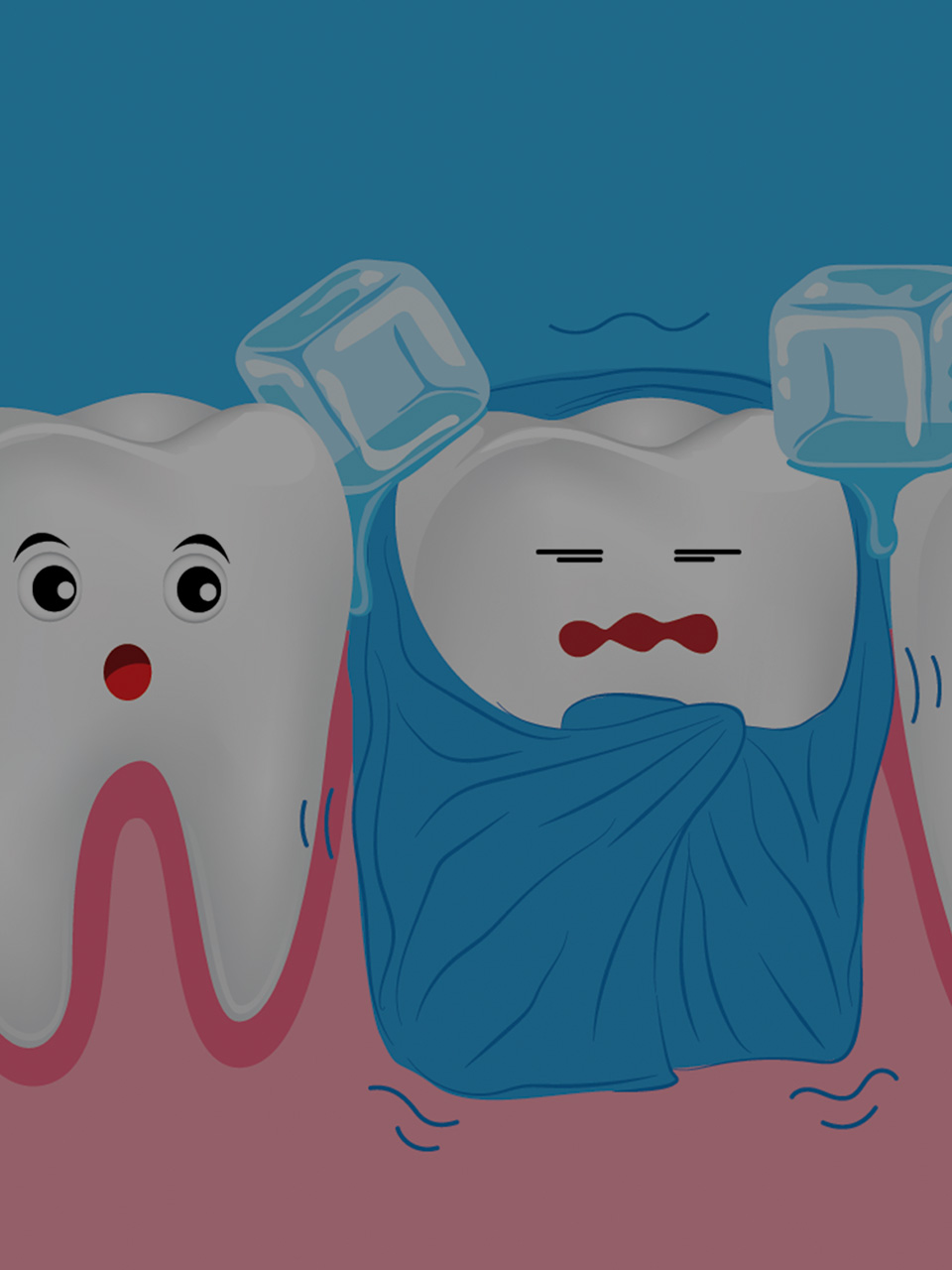
Tap to Read ➤
Sensitive Gums: Causes, Symptoms and Treatment
Smita Pandit


Gum sensitivity is a common dental problem that may be accompanied by sore gums and/or bleeding gums. The following write-up provides information on the causes and symptoms of sensitive gums along with the treatment for the same.

Gum sensitivity, which is also referred to as dentin hypersensitivity, is a dental condition that could be caused due to a variety of reasons.

While consuming hot or cold food items doesn't cause any discomfort or pain in people having healthy gums and teeth, people suffering from sensitive gums experience transient discomfort or a sharp, shooting pain in response to stimuli. Such exaggerated reactions to sensory stimuli (consuming hot or cold food items) occurs due to loss of enamel or dentin.

Symptoms of Gum Sensitivity
► Dentin hypersensitivity could also be a sign of a gum disease. If a person is suffering from this problem, then his/her gums may bleed frequently. Gums may turn red and may swell up. They may also become painful to touch.

► A characteristic sign of sensitivity is pain on eating hot or cold food. When dentin, which is the underlying layer of teeth, gets exposed, the roots of the teeth also get exposed. The roots contain several tiny tubules that lead to the pulp chamber or the nerve center located in the center of the tooth.

The pulp chamber contains connective tissue, nerves and blood vessels. When the gum tissue recedes and tubules get exposed, the stimuli is able to reach the pulp chamber and the nerves in your tooth. Thus, when one consumes hot or cold food items, the sensory nerves carry the message to the brain. As a result, one experiences discomfort.

Contributory Factors
► Dentin hypersensitivity could be triggered by a variety of reasons. It may occur if one uses a hard-bristled toothbrush for brushing teeth. One must also refrain from brushing the teeth vigorously.
► Gums might become sensitive due to a vitamin C deficiency. Therefore, one needs to follow a diet that fulfills the body's needs for nutrients.
► Gums might become sensitive due to a vitamin C deficiency. Therefore, one needs to follow a diet that fulfills the body's needs for nutrients.

► One may suffer from sore gums due to the formation of plaque or tartar which further leads to gum problems such as gingivitis, receding gums, periodontal disease or gum abscess. Those who don't brush their teeth regularly are also more likely to suffer from gum problems.

Heavy smokers are also at an increased risk of developing dental problems. Sometimes sensitivity might occur due to the prolonged use of certain drugs.

► Pregnant women are also more susceptible to gum problems. A woman goes through hormonal changes during the course of pregnancy. It is believed that high progesterone levels during pregnancy may make the gums more sensitive. Since the blood volume also increases during pregnancy, pregnant women may also become susceptible to the problem of bleeding gums.

► At times, people who undergo teeth whitening methods or dental procedures can suffer from this problem.
► Excessive consumption of caffeinated drinks, sweets or acidic food can also lead to erosion of the enamel coating of the teeth.
► Excessive consumption of caffeinated drinks, sweets or acidic food can also lead to erosion of the enamel coating of the teeth.

Treatment and Home Remedies
Taking into account the damage that may be caused by poor dental hygiene, the wise thing to do would be to take all possible precautions to prevent one's gums from becoming sensitive. Ignoring gum problems can have serious consequences. So, if your gums feel sore and often bleed when you brush your teeth, you must take steps to strengthen your gums.

► Follow a balanced diet that will help in fighting gum infections.

Consumption of sugary, starchy or acidic food might aggravate the problem of tooth sensitivity. One must therefore refrain from consuming sugary drinks, baked goods, processed food items and acidic food items like tea, pickles or tomatoes. These foods may cause the enamel coating to erode which in turn may make one susceptible to gum sensitivity.

► Since smoking can aggravate gum problems, it would be in one's interest to quit smoking.
► Teeth grinding can also wear down the enamel coating, therefore one can use a mouthguard to tackle this problem.
► Teeth grinding can also wear down the enamel coating, therefore one can use a mouthguard to tackle this problem.

► Brush your teeth after meals. Flossing prevents the food from getting stuck in the teeth and prevents bacterial action. Flossing with a woven floss might certainly prove beneficial. One must always use a good quality soft-bristled toothbrush.

► A gentle massage with clove oil can help in strengthening the gums.
► You can also use a desensitizing toothpaste or a gum gel that is specifically meant for people with sensitive gums.
► Dentists often recommend the use of high-fluoride dental care products to prevent gum infections. Dentin sealers or fillings can also help in covering the exposed surface.
► You can also use a desensitizing toothpaste or a gum gel that is specifically meant for people with sensitive gums.
► Dentists often recommend the use of high-fluoride dental care products to prevent gum infections. Dentin sealers or fillings can also help in covering the exposed surface.

If gum or tooth sensitivity is becoming a cause of concern for you, it is advisable to consult a dentist for treating sensitive teeth. Follow a dental care regimen and don't consume food items that may erode the enamel coating. Comply with the guidelines given by your dentist to keep your gums in a good condition.

Disclaimer: This is for informative purposes only, and should not be used as a replacement for the advice of a dentist.